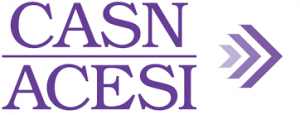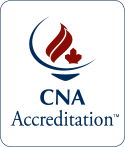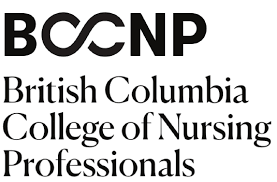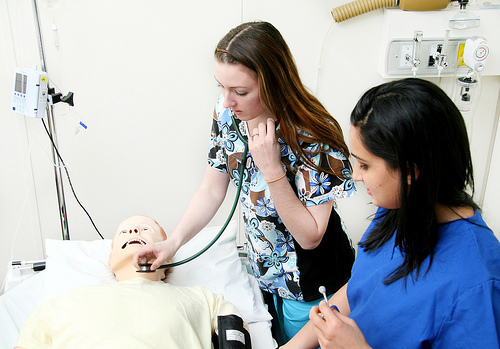
There are various organizations who take on the role of accreditation of nursing programs. This post will explain the roles that these organization plan in order to ensure different levels of program and provides two specific examples of accreditation at the provincial level, one which I participated in. Because of the various processes in place in Canada, nursing education meets high standards and I could not find any accounts of programs in Canada where the accrediation of a nursing program has been revoked or unsuccessful.

The Canadian Association of Schools of Nursing is a national body which since 1987 has been tasked with ensuring baccalaureate nursing programs meet established standards. Click here for a list of the BSN programs presently accredited in Canada. And here is a copy of the current accreditation standards: CASN Accreditation Standards (pdf)

Who is Eligible for the Program?
For a CPD opportunity to be eligible for accreditation, a nursing organization must have played a lead role in its development. Nursing organizations who are fully responsible for a program can apply for accreditation directly. Non-nursing organizations are also welcome to apply, providing the program is co-developed with a nursing organization.
What is a Nursing Organization?
CNA defines “nursing organization” as a not-for-profit group of health professionals with a formal governance structure. The organization serves and is accountable to its specialist nurse members and others by providing continuing professional development (CPD), health care, and/or research. The definition excludes for-profit organizations and ventures, government agencies and disease-specific advocacy groups.
Examples of nursing organizations:
- Faculties of nursing
- Health authorities and/or hospital departments or divisions
- Nursing societies
- Nursing associations
- Nursing academies
- Canadian provincial/territorial nursing regulatory authorities
Examples of non-nursing organizations:
- Pharmaceutical companies and their advisory groups
- Medical and surgical supply companies
- Medical device companiesCommunication companies
- Disease-oriented patient advocacy organizations (e.g., Diabetes Canada)
- Government departments or agencies (e.g., Health Canada, Public Health Agency of Canada)
- Medical education or communications companies (e.g., CME Group)
- For-profit online educators, publishing companies or simulation companies
- Small groups of nurses working together to develop educational programming

There is also an accreditation process for aspects of nursing education at the provincial level. In British Columbia, the BCCNP (which is the provincial nursing college – formerly known as the College of Registered Nurses of BC or CRNBC) is the body responsible for accrediting non-degree nursing programs. The BCCNP Guidelines for Nursing Education Programs outlines the process for review of a Nursing Education Program review by the Education Program Review Committee (EPRC) as follows:
Preliminary Review
• The EPRC requires 3 weeks to review the self-evaluation report. They then instruct the site visitors on what evidence to collect and verify.
• Site visit instructions are sent to the program about 1 week before the visit.Site visit
• A site visit team visits the educational institution to collect and verify evidence as requested by the EPRC. The visit is normally 2 days at one site.
• The team submits a written report to the EPRC. The site visitors attend an EPRC meeting to discuss the report about 3 weeks thereafter.
• CRNBC sends a copy of the report to the program at the same time it goes to EPRC.Final Review
• The EPRC concludes its assessment, formulates its tentative recommendation, and discusses these with the program representatives.
• The EPRC then prepares its final report and recommendation to the CRNBC Board. The CRNBC Education Consultant communicates with program representatives about the outcome and timing to complete the process.Decisions
• The CRNBC Registrar/Chief Executive Officer (CEO) approves, on behalf of the CRNBC Board, the EPRC recommendations when the recognition status of the program is not jeopardized, or a Bylaw amendment to Schedule C is not required, by the recommendation.
• The CEO reports to the Board on EPRC recommendations and actions taken.Follow up
The CRNBC Education Consultant is available to discuss the final report upon request and make plans for future reviews.
The Return to RN Practice (RRNP) program that I teach in is part of Thompson Rivers University-Open Learning (TRU-OL). The RRNP underwent the above process of accreditation in 2018. I participated in the Preliminary Review by reviewing the 86 page self-assessment document which was submitted to the CRNBC Education Committee by our Program Coordinator. As part of the Site visi“, I identified students and preceptors who could participate in interviews with the reviewers. I also participated in a teleconference with two other program instructors as well two CRNBC reviewers and responded to specific questions which they had on practices within our program. This was done by teleconference as our program is online and instructors live elsewhere in the province. Finally during the Decision step, recommendations were made by the EPRC which were minor suggestions for improvement and the RRNP program received maximum accrediation term of seven years as well.
The story below describes other courses offered through Thompson Rivers University – Open Learning (TRU-OL) which also obtained the maximum seven year accreditation through this process in 2017.
Nursing receives top honours from provincial regulatory body
Posted on: July 14, 2017
 Nursing students perform tests on a electronic mannequin that can be programmed to exhibit a range of symptoms.
Nursing students perform tests on a electronic mannequin that can be programmed to exhibit a range of symptoms.
Commitment to a high-calibre learning experience has earned TRU’s School of Nursing (SoN) the highest possible approval from the College of Registered Nurses of British Columbia (CRNBC) Education Program Review Committee.
“The School of Nursing is very pleased to receive notification that the CRNBC has granted seven years’ recognition for the registered nurse qualifying theory and practice courses in psychiatric/mental health and perinatal nursing offered by the School of Nursing through Open Learning,” said Dean of the School of Nursing, Donna Murnaghan. “This is significant because it’s the longest period of recognition offered by the CRNBC.”
The seven-year designation is the result of a rigorous review which scrutinized the SoN, its administration, faculty and programs.
Reviewers were complimentary about the quality of the courses, the comprehensiveness of the reports that were submitted, the clarity around the competencies and learning outcomes, the comprehensive study guides, the model of evaluations used, the formative evaluations system and the robust polices used to guide the work and the comprehensive course delivery methods.
The courses are offered online to internationally educated nurses who are required to be licensed to practice in BC and for nursing students who use these courses as electives or as courses to advance their knowledge and understanding of theory and practice in these areas.
“Earning the maximum period of recognition is a testament to our commitment and dedication that all our students receive a rewarding and high-calibre learning experience—one where their education is recognized for employment opportunities in diverse settings,” said Murnaghan.
TRU President and Vice-Chancellor Alan Shaver said the endorsement is another milestone to be proud of. “Peer review approval of any program is a challenging process,” said Shaver. “After intense scrutiny, this designation recognizes the excellent education our Open Learning students can expect from TRU’s School of Nursing.”
Source: TRU nursing receives top honours from provincial accreditation organization